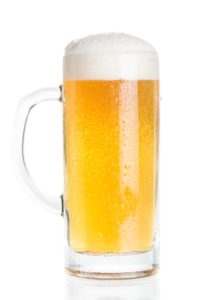Writing habits—setting the stage
Writing habits can increase or decrease our output. One of the things I like to do is make my writing environment comfortable.
Peacefulness and focus are important and set the stage for a productive writing (or editing) session. Things that speak peace and focus to me are candles, the sound of water flowing, coffee, junk food, and sometimes instrumental music. I have three motivational prints hung in a column on the wall next to my desk; here’s what they say:
- “Imagination: The true sign of intelligence is not knowledge but imagination. —Albert Einstein”
- “Goals: One may walk over the highest mountain one step at a time.”
- “Focus: Focus on your goals and let nothing get in the way of your dreams.”
The “goals” and “focus” prints sit constantly in my peripheral vision when I’m at my desk, but I don’t have to move my head much to see the other one. They remind me about thirty times a day to “Get back on task, Woman!” It only takes a split second for them to do their job.
Solitude isn’t always good
I have to temper sayings like this, though, because I could easily bite the head off of my husband or any (or all) of the kids because they “get in the way” of my work every day (he works nights and the kids homeschool). They are important and I don’t want them to feel bad about needing me. The times I am alone, though, I can get amazing amounts of work done in a short period of time, but I must say that I get lonely or feel antsy after a few hours—which I never would have predicted. One summer in college, I worked 16 hours a day compiling and cataloging a library in near-total solitude for 90 days and never once felt lonely. That was the norm for me: being able to work alone for long periods of time.
Now that I’ve spent the last 15 years with little people around me nearly every waking minute, however . . . to adulterate Henry Higgins’ statement, “I’ve grown accustomed to their faces and their noise.” I crave interaction with them, as much as I sometimes complain about the interruptions and noise level, so if for some reason they aren’t in the room with me (they almost always are within arm’s reach) and it’s been too long since one of them asked me a question, I may find myself going to wherever they are.
Things that interfere with productivity
What I do not need is any sort of TV type of thing running. My husband often plays videos that are in his facebook feed, and . . . just no. Any other words (even in music) while I write or edit messes with me. I’ve been known to be tooling along and as someone speaks, to type what they said—right there in the middle of my sentence. It’s like I’m a blasted court reporter. While it’s comical, I don’t need that. It’s always been that way, so when I started doing some transcription, it did come in handy to be able to type automatically anything that I heard, but it’s a pain otherwise.
Interruptions also interfere, but short breaks can actually increase productivity. Do a search for “Pomodoro Method” for some specifics on using bursts of work with short breaks. Perhaps the key is to have planned interruptions.
Writing tools
As for writing tools, I mostly use my computer (and Microsoft Word). I tried writing something on my phone the other day (just joined the smartphone century) because someone I know had commented that she writes on her phone all the time, and oh, boy, never again. It took about ten seconds to realize that was the biggest writing headache of all time. Better to open a vein and write in my own blood on the wall of a cave.
I have written longhand in a notebook. I often do that for any journal writing, brainstorming, mind-mapping, and other things like that. Perhaps when I need to think, a notebook and pencil are the best tools. Often when I write, I do it at the computer, and an entire piece comes out in one fell swoop (I once wrote a 20,000-word draft of a nonfiction book in about two days). That’s because it “bakes” in my brain for a long time before I let it out.
Let there be snacks?
When I’m writing (or editing, for that matter), I often have food and drink at hand. To drink: iced water, tea, or diet soda; or hot coffee. To eat: Not much recently, but I used to have Hershey’s bars, Tootsie Rolls, Skittles, M&Ms, or tiny pretzels (all bite-sized rewards), and sometimes brownies. Writing habits that involve food are unwise to develope. These days, I just have a huge glass mug (it might be a beer mug) full of ice and water, tea, or diet soda. Here’s one that looks like mine, with different contents.

My glass holds around a quart, and I chug at least four of those babies while I work—usually iced water. That’s not counting what I have at meals, so I stay hydrated despite my diabetes. Staying hydrated helps me remain alert.
I save snacking for when I really must focus and am having a hard time doing so. Try healthful options such as carrot sticks. Recently I have been harvesting cherry tomatoes from my container gardens and eating them.
Best time to write

It really helps me to write first thing in the morning, when the house is as close to silent as it will ever be.
Just sitting down at the computer with a cup of coffee or a gigantic glass of iced water while the house is fairly quiet in the dark, pre-dawn hour of 4 AM does the trick. Usually. Sometimes I need pressure.
Working under pressure
Pressure isn’t always a bad thing. I need to know that I have committed to others (usually all of my facebook friends) to do something in a set amount of time, and that the time is running out. Pieces I must return to clients have that built in, but my own writing really does not. It’s an artificial pressure and deadline, and my brain knows it. Therefore, the pressing things interfere with my own writing habits:
- the virtual stack of books and blog posts clients want me to edit
- my children’s schooling
- necessary household tasks
- church services
- the 104 new emails I receive on average each day
- the books I want and/or need to read
- friends and family who want or need something from me
- my medical conditions, and
- all of the errands and appointments for the entire family
Bringing someone else into it to pressure me (even if it’s just in my head) is usually necessary. It’s a good-natured pressuring, but it’s still effective. We call these sessions work/writing sprints.
Knowing exactly where to start
Another of my writing habits helps me know where to start the next day. The habit is leaving the last sentence (from the day before) incomplete. It only takes me a few seconds to think of (or remember) how to finish it. The ball doesn’t always keep rolling after that, but it does so often enough to make that practice worth doing.
To sum up, the writing habits that help me are getting up before the sun and my family members, having coffee or a large glass of something cold, and (depending on the time of year) lighting a scented candle. That gives me a few hours to work before the interruptions begin, and when they do, I get to hug the ones who bring them. What writing habits help you, and what might you try? Let us know.
